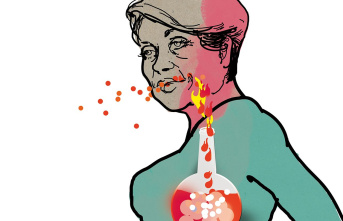MADRID, 14 May. (EUROPA PRESS) -
Vox has presented an amendment to the totality so that the text of the Procedural Efficiency Bill proposed by the Ministry of Justice be returned to the Government, considering the mediation reform "deficient", since these changes, in his opinion, bureaucracy, costs and delays will increase.
For the party of Santiago Abascal, the main reason for amending the project is "the deficient reform of mediation" and that, under its protection, norms in the civil, penal, contentious-administrative and social orders are altered "in an infinity of matters, including extraordinary appeals such as cassation".
In the letter, collected by Europa Press, Vox understands that imposing a prior attempt at an out-of-court solution such as mediation will increase the formalities, costs and bureaucracy of the courts and, with it, delays and uncertainty, before rejecting the concept of "abuse" of public justice.
Signed by Macarena Olona, the general secretary of Vox in Congress doubts in the amendment that the reform will "make the predicted potential of mediation current", understood as an "instrument to promote the participation" of citizens in the system judicial, "what does not respond to any known truth".
In Vox's opinion, "it is not fully understood what innovation the existence of a negotiation prior to litigation can represent", since "it probably already happens in almost all the controversies that become contentious", they point out in the letter. They also do not understand why lawyers should be involved.
Vox sees a "disorientation" in the project proposed by the Government, since it considers it "unintelligible" to appeal to citizen participation and democracy as the foundations of mediation. "This is a rhetorical and demagogic innovation, which shows the lack of focus of this legislative initiative," they add.
In addition, the political formation believes that in the Procedural Efficiency Bill "a strange idea seems to underlie" that, according to Vox, attribute to society a predisposition to litigate "that would deserve to be repressed." In this sense, they emphasize that, on the contrary, "what is certain" is that a person goes to court when it has been impossible for them to reach an out-of-court solution.
Olona also points out in the amendment that the "obsession with digitization" of justice is "impracticable or onerous" for many citizens, since its implementation requires material means "today non-existent" in Spain. "The government's approach is nothing more than an empty promise," he says.
"Probably, the purpose of the Government is the attempt to achieve political success for having addressed, even if only apparently, the procedural reforms as a whole before the end of the current legislature, but without practical consequences for the benefit of the defendants," concludes the match on his brief.
And Olona criticizes that for decades in Spain the most used response to the "malfunctioning" of the Judicial Administration has been to implement "successive procedural reforms" as if they were "a kind of Fierabrás balm that would cure all their ailments."
On April 12, the Council of Ministers approved the Draft Law on Organizational Efficiency and the Draft Law on Procedural Efficiency which, according to the Minister of Justice, Pilar Llop, represent a boost to the pillars of the Justice 2030 plan and constitute a firm step towards a "more efficient, agile and sustainable" model.
"Today I have the great honor of presenting this package of measures to you," said the minister, stressing that both projects will have a "direct impact" on connecting citizens with justice. "We're all going to be able to sense these changes," she noted.
At the press conference after the Council of Ministers, Llop explained that the new Law on Procedural Efficiency introduces "the paradigm of adequacy, efficiency and sustainability of the system" so that justice works "as an engine of social cohesion" . In his opinion, this norm "contributes to democratic quality and to providing the most adjusted and flexible solutions."
According to Llop, the Procedural Efficiency Law is intended to streamline activity in structural terms, facilitate social cohesion and contribute to a more sustainable justice system. For this, it is committed to the appropriate means of dispute resolution (MASC) and reforms the procedural laws. From the Ministry they trust that these means of solution will reduce the litigation and the overload of the courts.
The rule establishes a procedural requirement in civil and commercial procedures. In this sense, it is required to have tried a consensual solution before filing a lawsuit. The parties may meet this requirement through direct negotiation, independent expert opinion, conciliation, mediation, or a confidential binding offer.
It also contemplates the figure of adequate conflict resolution media services to inform citizens and legal operators about their nature, content, effects of their use and existing resources, as well as assisting the different judicial bodies with respect to the advisability of conflict resolution. referral of a particular case to a negotiating activity.
Llop stressed that these means of dispute resolution will allow "to better guarantee the rights of citizens through less expensive and time-consuming means." "This is about a shift from the culture of litigation to the culture of settlement," he said.
3












